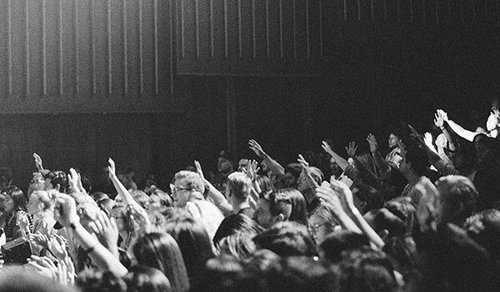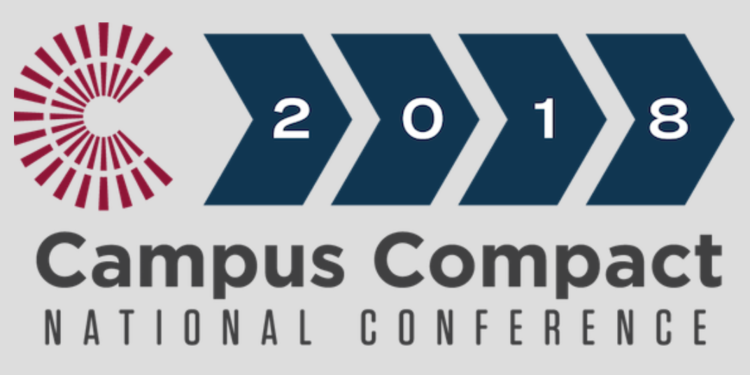 This new report on civic engagement of young people is a great read on youth led research, civic education and the role of universities and high schools in education for democracy. Excerpts below-full report here http://wtgrantfoundation.org/youth-civic-engagement-inequality
This new report on civic engagement of young people is a great read on youth led research, civic education and the role of universities and high schools in education for democracy. Excerpts below-full report here http://wtgrantfoundation.org/youth-civic-engagement-inequality
Many young people live in “civic deserts”
Since the beginning, CIRCLE has focused on severe disparities in the opportunities to become civically engaged in America. For instance, young people who are headed to college are much more likely to volunteer and belong to organizations than their counterparts who are not college-bound. These disparities translate into major gaps in who has voice and power in politics and civil society.
Youth participate when they have opportunities and are asked, but we find that such opportunities are missing in many communities. We call places where civic engagement is absent “civic deserts.” Although some youth in suburban and urban areas perceive that no organizations would want them to participate, and that there are no physical places where they could address local issues, that perception is almost twice as common in rural areas. It is likely that the sheer distance to religious congregations, nonprofits, and cultural institutions—as well as a lack of investment in such resources—makes many rural communities feel like civic deserts to youth. Other research tells us that in all kinds of communities, opportunities to participate in civic activities in school are more common for advantaged students who attend well-resourced schools. A high school may be a kind of civic desert for the students it enrolls even if it is located in a city that offers many cultural and civic resources.
Civic engagement is good for youth
One reason for our concern about these disparities is that being civically engaged can help a young person succeed. Working on a community’s problems is a way of building skills, creating connections, and giving youth new reasons to stay in school and succeed there.
For example, YouthBuild USA enrolls youth who have not completed high school. Participants learn academic content and job skills while helping to manage building projects that serve their communities. In our evaluation of YouthBuild, we heard many stories about participants gaining new career aspirations as a result of their experiences running their work sites. One graduate told us, “Getting involved in the policy committee activities and being a speaker for the program uplifted me, and gave me more motivation. And I thought, ‘I can be a leader.’”
When I interviewed graduates of Points of Light’s Service Works program, which gives marginalized youth opportunities to define and address community problems in teams, many told me about positive effects on their career plans. One interviewee told me that it “definitely wasn’t [her] plan” to go to college before she enrolled in ServiceWorks, but it got her “on track,” and she is now pursuing an associates degree.
Getting a young person on a better track by engaging her in civic activities has benefits that go far beyond the individual. Opportunity Nation, which works to engage disconnected young adults, estimates that “Young adults who are not in school or working cost taxpayers $93 billion annually and $1.6 trillion over their lifetimes in lost revenues and increased social services.” Offering civic opportunities has the potential to cut those social costs.
Youth also contribute to communities
We’ve also been impressed by evidence that geographic communities where people are more civically engaged are much better places to come of age. Robert Sampson argues that “collective efficacy,” the habit and norm of taking action together in a community, “transcends poverty and race and in many cases predicts lower violence and enhanced public health” (Great American City, p. 168). Raj Chetty and his colleagues, when analyzing tax records for 40 million pairs of parents and children, find that one of the factors that promote economic mobility is social capital, that is, “the strength of social networks and community involvement in an area.”
These findings do not suggest that government programs are unimportant or that communities can or must solve their own problems unaided. Rather, public institutions of all kinds (including schools and police) seem to serve people better when communities are more organized and active.
Most of the research on the correlation between civic engagement and prosperity, mobility, or equity looks at whole populations. In our current work, we are exploring the hypothesis that young adults are pivotal to civic life. If they are active in organizations that serve the community and help younger kids, they can have a huge positive impact. But young adults can be detrimental if they find harmful alternatives to civic opportunities—gangs, for example, instead of neighborhood associations.
How to expand opportunities for civic engagement
If our hypothesis about the importance of young adults’ civic engagement proves correct, it will provide an argument for investing in positive, pro-civic youth opportunities as a strategy for enhancing everyone’s economic outcomes. Programs like YouthBuild and Service Works show positive results, but are very small compared to the demand.
In addition to expanding and strengthening programs that enlist young people in improving their own communities, we must also fix flaws in the labor market to value civic skills. Today, high school or college degrees, previous jobs, and references serve as the major sources of information for prospective employers. A low-income or otherwise marginalized young person who has gained truly valuable skills by participating in civic activities may be unable to demonstrate her market value to employers.
For example, maybe an employer would love to hire someone who is capable of organizing a popular event, but that skill will not be evident in a job application. Offering reliable credentials for civic skills may help young people translate civic experience into jobs. The criteria for the skills would be chosen collectively by a coalition including educators, employers, and youth, and then the ability to confer the credential could be distributed.
Youth are transforming the research
I’ve described the mainstream of our own work on the connections between civic engagement and equality since 2001. But the research agenda has changed lately because of youth advocacy—the very thing we study.
Movements like Black Lives Matter have raised awareness about arbitrary and harmful policing and disciplinary policies. Scholars, often influenced by these youth (and also drawing on past research), are demonstrating the relevance of those issues to civic engagement. For example, Sarah K. Bruch (Iowa) and Joe Soss (Minnesota) use nationally representative surveys of students and administrators to measure the harshness of schools’ disciplinary policies.
School discipline is related to race, class, and gender. Just for example, African American boys whose parents have little education are more than ten times more likely to be punished by a school than White girls with well-educated parents. In their multivariate model, Bruch and Soss find that most of these school climate variables are related to the later civic engagement of youth, with harsher and less inclusive climates depressing graduates’ community engagement, voter turnout, and trust in government.
I mention this shift in the research agenda for two reasons. First, it is important substantively. An essential way to improve youth civic engagement is to reform school discipline. Youth have helped us to understand a complex, interconnected problem. By treating students unfairly, schools depress civic participation, which then makes school reform less likely and more difficult. Teachers who strive to educate their own students about democracy face profound obstacles if the broader context of the school and neighborhood is unjust and alienating. However, programs and policies that offer young people real voice may interrupt these damaging cycles.
Second, the shift in the research agenda illustrates the necessity of youth voice. Young people are the ones who best understand their own contexts and can diagnose and address problems. Through Black Lives Matter and related social movements, youth have drawn the attention of older people and formal institutions to a set of crucial issues that are obvious to them because they live with them every day, including arbitrary suspension and arrest. This is an example of why youth should be prominent in diagnosing social issues and inventing solutions.





 This new report on civic engagement of young people is a great read on youth led research, civic education and the role of universities and high schools in education for democracy. Excerpts below-full report here
This new report on civic engagement of young people is a great read on youth led research, civic education and the role of universities and high schools in education for democracy. Excerpts below-full report here 

